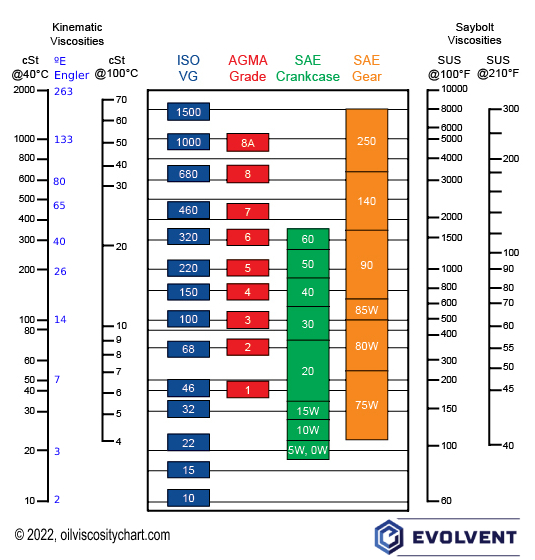Oil Viscosity Chart: Compare, Choose, and Subsitute Industrial Oils
Comparing Viscosity and Choosing the Right Industrial Oil
Viscosity is a measure of how thick an oil is, and is essential for proper machine lubrication. We've compiled a list of oils from the major manufacturers to help your analysis. You can easily compare viscosities and see how an oil's viscosity changes with temperature. Find equivalents, make substitutions, and see the data without the marketing fluff
Our Big List of Oils – The Industrial Oil Selector
What Oil Viscosity Should I Use? Know the purpose of your Oil ▼
What's the Difference between ISO and SAE? ▼
Machine oils manufacturers use various specifications (and checklists) to ensure their lubricants are fit for their purpose and suited for use. These specifications can also guide the end user on what industrial oils are appropriate substitutes. Whether you're a maintenance planner comparing prices between Shell, Mobil, Castrol, and Chevron; a purchaser watching out for supply chain disruptions; or a vintage machine enthusiast, it's always important to know what oils can be substituted in a pinch.
(Ctrl+Click) or (Cmd+Click) to select multiple
Result Section
Need help? Email contact@evolventdesign.com and we'll get back to you
Please make a selection
Parametric Oil Database
If an oil isn't made, or isn't available anymore, knowing its properties can help you find a suitable alternative. These alternatives can also help drive cost savings, or longer maintenance intervals when switching between conventional and synthetic. While we always encourage following the OEM's recommendations, it's good to know what else is out there.
